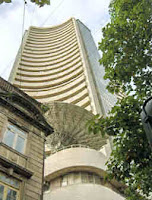Hope Persists Amidst Gloom in Jinnah's Pakistan

Media reports from Pakistan often portray a picture of doom and gloom, with the IMF bailout of the economy, terrorist training camps, Islamic radicals, horrible governance, and corrupt and inept politicians making the headlines around the world. The adjective of "failed state" is often used to describe Pakistan. Is there more to the story than the big headlines? Is there hope for Pakistanis amidst the doom and gloom? On Quaid-e-Azam M.A. Jinnah 's 132nd birthday today, I think there is. The telecommunication, information technology, higher education, media and the middle class progress started during Musharraf-Aziz years continues to have its impact on the country founded by the Quaid-e-Azam more the 61 years ago. Here are a few things I found posted by a fellow blogger on Tech Lahore blog: 1. Pakistan is the most connected country in South Asia, with the highest teledensity . The Internet penetration in Pakistan is at 10% versus 5% in India, according to ITU . 2. Paki...













